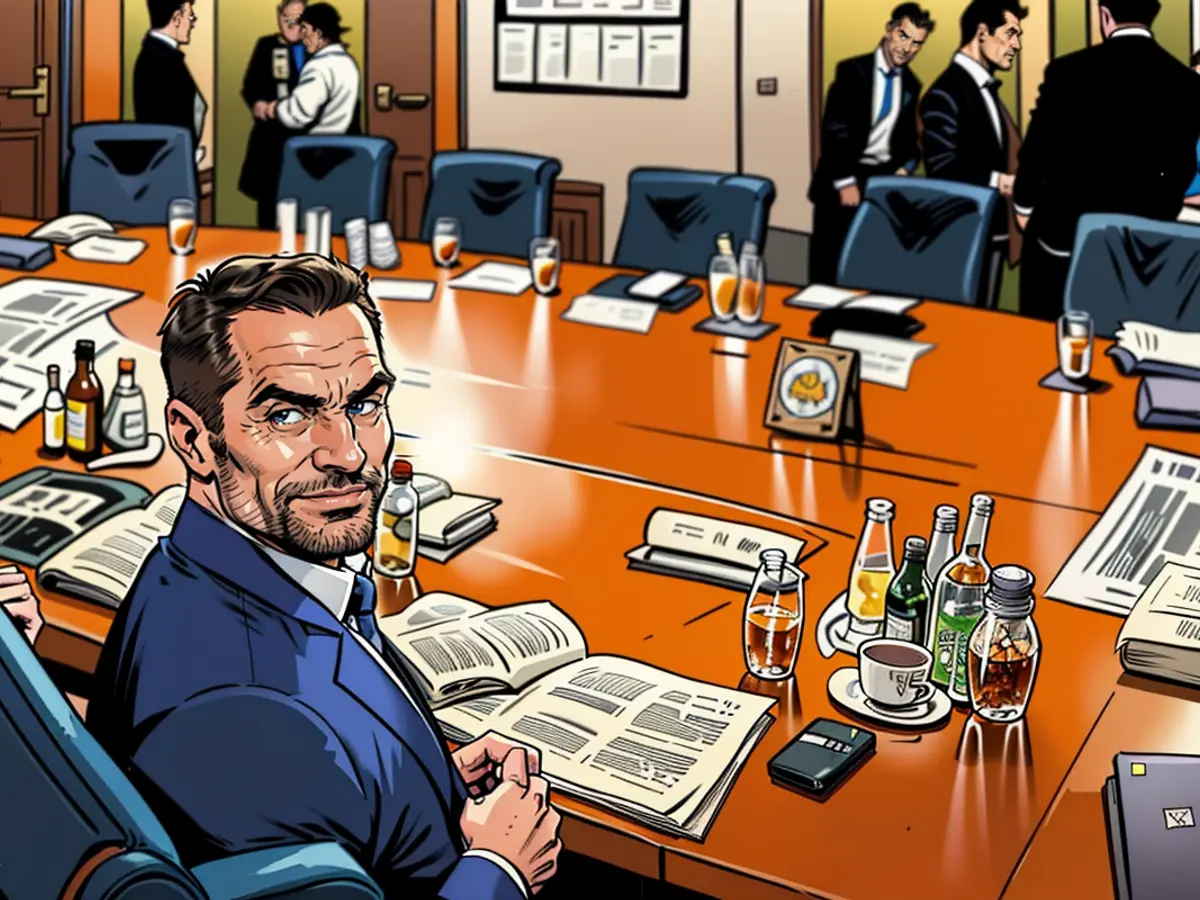Federal Cabinet sets Budget 2025 in motion
The Federal Cabinet sets the budget for next year in motion. With this, the contested draft in the traffic light coalition can now be forwarded to the Bundestag.
The contested federal budget for 2025 of the traffic light coalition has taken its first official hurdle. The Federal Cabinet approved the draft, which can now be forwarded to the Bundestag. This marks the beginning of the "entry into the economic turnaround," Finance Minister Christian Lindner stated. The Cabinet also adopted several economic policy impulses intended to stimulate the recently weak growth.
Chancellor Olaf Scholz, after the painstakingly achieved budget compromise, emphasized in a TikTok video that the result was worth it. Marathon sessions, a sleepless night, and anxiety about the future of the coalition - all seemingly secondary. "It's done," the Chancellor emphasized.
The traffic light government plans to spend over 480 billion Euros next year, more than 488 billion Euros in this year. 78 billion Euros are earmarked for investments - a record level.
Key Figures
The budget has a total volume of 480.6 billion Euros. This is about eight billion Euros less than this year. 78 billion Euros are allocated for investments.
Finance Minister Lindner plans to take on new loans in the amount of 43.8 billion Euros - slightly less than this year. This money can be taken on by the federal government despite the debt brake. SPD and Greens had considered making an exception for higher loans, but the FDP prevailed.
However, more loans are to be taken out in the current year: The Cabinet also passed a supplementary budget with 11.3 billion Euros in additional debt. This is also possible with the debt brake because the economy is so weak. The money is intended to cover additional needs for the promotion of green electricity and the citizen's income, as less tax revenues are coming in.
Key Focus Areas
The traffic light coalition aims to stimulate the economy, maintain social benefits, and address the tense international security situation with the budget for 2025. Defense Minister Boris Pistorius receives additional funding, allowing Germany to exceed the NATO quota of two percent of Gross Domestic Product. The Federal Police, Federal Criminal Office, and other security agencies receive around one billion Euros in funding.
Families will be supported through higher childcare allowances and higher child supplements for working parents with low wages. In total, approximately 23 billion Euros in tax relief is planned for 2025 and 2026. This includes an increase in tax-free allowances for income tax and wage tax.
No Austerity Budget
When it comes to negotiations, Lindner is happy to present himself as tough. A balanced budget is only possible, he said in a video released by his ministry, "by curbing the appetite of politics for ever higher state expenditures."
His ministerial colleagues must learn to be more restrained. "The main task was to bring the individual ministries to the so-called financial plan, that is, what had already been planned in terms of state revenues," Lindner said.
In fact, the comparison of the budget draft with the budget plan for 2025 set up in the previous year is instructive. It shows: Scholz, Economics Minister Robert Habeck, and Lindner have not really imposed a harsh austerity budget. Almost all ministries are to receive more money in the end than they were promised last year.
Above all, Traffic Minister Volker Wissing, Education Minister Bettina Stark-Watzinger, Interior Minister Nancy Faeser, Family Minister Lisa Paus, and Defense Minister Pistorius can spend more money. Even Foreign Minister Annalena Baerbock, who reportedly put up a strong resistance in the negotiations, will receive over 500 million Euros more than planned.
Others will have to make do with what Lindner offered them last year: for example, the Economy Ministry, the Development Ministry, and - with a small minus - the Building Ministry.
Budget tricks and crucial open questions
The lack of major savings means that budget tricks are necessary for a balanced budget. Lindner plans to budget interest payments differently in the future. He also hopes that through a package for more economic growth, whose key points the cabinet also approved, around six billion Euros more in tax revenue will come in.
There is also the so-called global under-expenditure of 17 billion Euros. The federal government is betting on this in two ways: on the one hand, that the ministries will not spend the entire amount in that year, which is a common practice, but the amount is very high.
In the 17 billion Euros, there are also 8 billion Euros for whose financing the federal government already has an idea, but which may be constitutionally questionable. For example, money that the KfW Development Bank did not use for the gas price brake could flow back to the federal budget. Whether this is watertight is still being checked.
Lindner also needs to clarify whether it makes economic sense to replace subsidies for the German Railways and the Autobahn Agency with loans. These would not be counted towards the debt brake but could potentially have an impact if the companies borrow money on the capital market. If these three ideas cannot be implemented, the SPD, Greens, and FDP may have to renegotiate again.
- Discussions surrounding domestic politics have focused on the approved budget draft by the Federal Cabinet, with Christian Lindner, the Finance Minister, advocating for fiscal restraint in the face of rising expenditures.
- The traffic light coalition, led by Chancellor Olaf Scholz, is governed by a series of compromises, as evidenced by the budget approval process, which involves the cooperation of not only Christian Lindner but also key ministers such as Boris Pistorius and Lisa Paus.








